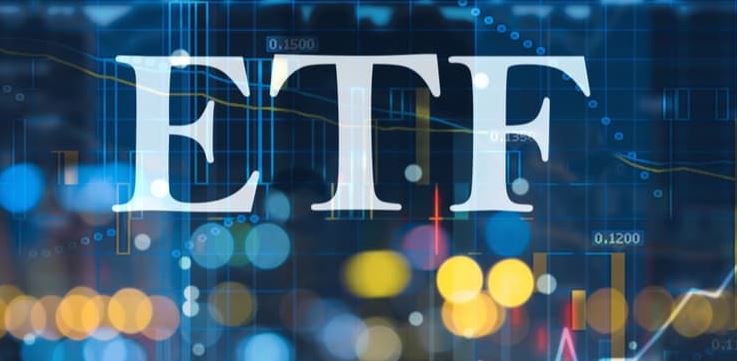In recent years, ETFs (Exchange Traded Funds) have become increasingly popular among investors in Singapore. As an alternative to traditional mutual funds, ETFs offer more flexibility, lower fees, and easy access to a wide range of asset classes. In this article, we will explore the world of ETF trading in Singapore, including the benefits, risks, and best practices.
ETFs are investment funds that are traded on stock exchanges, similar to stocks or other securities. Their underlying assets can vary widely, including stocks, bonds, commodities, and currencies. Each ETF is designed to track an index, sector, or theme, allowing investors to gain exposure to a particular market or investment strategy.
Top ETF trading Singapore Brokers
How do ETFs work?
ETFs are created by financial institutions or asset managers who purchase the underlying assets and bundle them into a fund. The shares of the fund are then listed on a stock exchange and can be bought or sold by investors throughout the day. Each share of an ETF represents a small fraction of the underlying holdings, giving investors easy access to a diversified portfolio with minimal investment.

Unlike mutual funds, which are priced once a day at the market close, ETFs are traded continuously throughout the day, and their prices fluctuate in response to market demand. This allows investors to buy or sell at any time, providing flexibility and control over their investments.
Advantages of ETFs
ETFs offer several advantages over other investment vehicles, including:
- Diversification: ETFs provide exposure to a wide range of assets, reducing the risks associated with a single stock or bond. This allows investors to build a diversified portfolio with minimal effort and cost.
- Low cost: ETFs typically have lower fees than mutual funds, as there are no fund managers actively managing the assets. This means that investors keep more of their returns while paying less in fees.
- Flexibility: ETFs can be bought and sold throughout the day, providing investors with greater control over their investments. This allows investors to react quickly to changing market conditions or take advantage of short-term opportunities.
- Transparency: ETFs disclose their holdings daily, enabling investors to fully understand what they are investing in. This level of transparency is not always available with other investment vehicles.
Risks of ETFs
While ETFs have many benefits, they also carry some risks that investors should be aware of:
- Market risk: ETF prices can be volatile, rising and falling with the markets they track. This means that investors may experience losses, even in diversified portfolios.
- Liquidity risk: Some ETFs may be thinly traded, which can make it difficult to buy or sell shares quickly. This can lead to wider bid-ask spreads and potentially higher costs.
- Tracking error: While ETFs are designed to track an index, they may not always do so perfectly. This can lead to tracking errors, resulting in lower returns than expected.
- Counterparty risk: Some ETFs use derivatives, such as swaps or futures, to achieve their investment goals. This exposes investors to counterparty risk, the risk that the other party in the derivative transaction will not fulfill their obligations.
ETF Trading in Singapore
In Singapore, ETF trading has become increasingly popular among investors, with a wide range of ETFs available across different asset classes and regions. The local stock exchange, SGX, offers a range of ETFs listed on its platform, covering everything from large-cap stocks to emerging markets, fixed income, and commodities.
One of the advantages of trading ETFs in Singapore is the ease of access to a broad range of markets and assets. Investors can gain exposure to global markets, such as the US, Europe, and Asia, as well as niche sectors, including technology, healthcare, and renewable energy.
Another advantage is the low fees associated with ETF trading. Many ETFs listed on SGX have low expense ratios, making them an attractive option for cost-conscious investors.
Best Practices for ETF Trading in Singapore
To get the most out of ETF trading, investors should follow some best practices:
- Do your research: Before investing in an ETF, thoroughly research its underlying holdings, track record, and fees. Understand the risks involved and ensure that the ETF aligns with your investment goals.
- Diversify your portfolio: While ETFs offer diversification, it is important to build a diversified portfolio across asset classes and regions to further reduce risks.
- Monitor your investments: Keep track of your ETF holdings and monitor the markets they track. This will help you make informed decisions and adjust your portfolio as needed.
- Consider tax implications: ETFs may have different tax implications than traditional stocks or mutual funds. Consult a tax advisor to understand the tax implications of your ETF investments.
Frequently Asked Questions
Can I buy ETFs without a broker in Singapore?
No, investors must have a brokerage account to buy or sell ETFs in Singapore. Most local banks and financial institutions offer brokerage services, or investors can use online brokers.
Are ETFs better than mutual funds?
ETFs offer several advantages over mutual funds, including lower fees, higher flexibility, and greater transparency. However, they may not be suitable for all investors, depending on their investment goals and risk tolerance.
How do I calculate the total cost of an ETF?
The total cost of an ETF includes several factors, including the expense ratio, brokerage fees, bid-ask spreads, and any other costs associated with buying or selling the ETF. To calculate the total cost, add up all of these expenses and compare them to the expected returns.
Can ETFs be used for long-term investing?
Yes, ETFs can be a suitable option for long-term investing, depending on the investor’s goals and risk tolerance. However, it is important to periodically review and adjust the portfolio to ensure it remains aligned with the investor’s objectives.